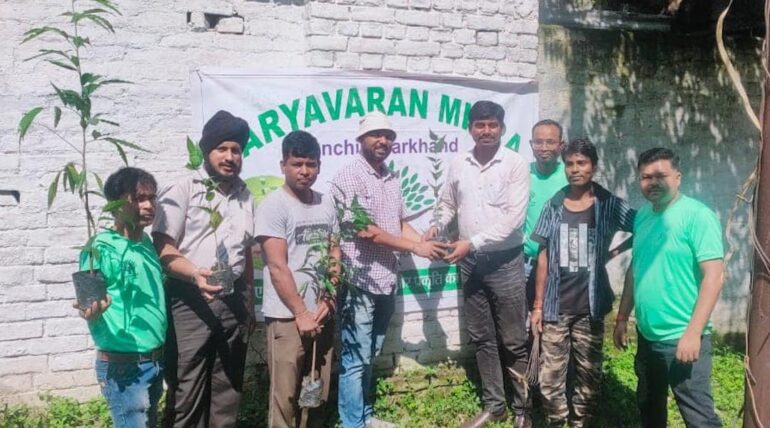Benefits of Maintaining a Clean Society and Sustainable Tree Plantation
In the heart of India’s eastern region lies Jharkhand, a state rich in natural resources and cultural heritage. However, like many other regions, Jharkhand faces environmental challenges such as pollution and deforestation. In response, grassroots movements promoting cleanliness and sustainable tree plantation have emerged, offering myriad benefits to both the environment and the community.
1. Environmental Preservation: One of the most significant benefits of maintaining a clean society and sustainable tree plantation in Jharkhand is environmental preservation. Trees act as natural air purifiers, absorbing carbon dioxide and releasing oxygen, thereby mitigating air pollution. Additionally, trees help prevent soil erosion, maintain biodiversity, and provide habitats for wildlife, contributing to overall ecosystem health.
2. Improved Public Health: A clean environment directly correlates with improved public health outcomes. By reducing littering and promoting proper waste disposal practices, communities in Jharkhand can minimize the spread of diseases and improve sanitation. Furthermore, trees play a crucial role in enhancing air quality, which can reduce respiratory illnesses and improve overall well-being.
3. Community Engagement and Empowerment: Engaging in clean society initiatives and tree plantation activities fosters a sense of community pride and empowerment. When residents work together to beautify their neighbourhoods and green spaces, they develop stronger social bonds and a shared sense of responsibility for the environment. This collaborative effort can lead to positive social change and a greater sense of belonging.
4. Climate Change Mitigation: Sustainable tree plantation is a powerful tool in the fight against climate change. Trees sequester carbon dioxide from the atmosphere, helping to mitigate the effects of greenhouse gas emissions. By strategically planting and preserving trees in Jharkhand, communities can contribute to global efforts to combat climate change and build resilience to its impacts.
5. Economic Opportunities: Investing in cleanliness and tree plantation initiatives can create economic opportunities for local communities in Jharkhand. Through eco-tourism, sustainable forestry, and the development of green infrastructure, residents can generate income while simultaneously protecting the environment. Additionally, tree plantation projects may create jobs in forestry, landscaping, and conservation sectors, stimulating economic growth.
6. Cultural and Aesthetic Value: Trees and clean surroundings enhance the aesthetic appeal of Jharkhand’s landscapes and contribute to the preservation of cultural heritage. Many indigenous communities in the state have deep cultural connections to trees and forests, viewing them as sacred and integral to their identity. By valuing and preserving these natural assets, communities can celebrate their cultural heritage while promoting environmental stewardship.
In conclusion, maintaining a clean society and sustainable tree plantation in Jharkhand offers multifaceted benefits, ranging from environmental conservation to community empowerment and economic development. By prioritizing these initiatives, residents can create a brighter and more sustainable future for future generations.




